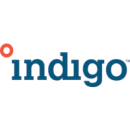If the thought of data science leaves you feeling curious, yet excited, you’re right where you need to be on the path to landing your first role.
Luckily for candidates, the field of data science is one that remains somewhat open to interpretation, especially as qualifications and general objectives greatly differ from role to role. When presented with such a large scope, how do potential new hires prepare for an interview — especially when it’s their first?
Ambiguity is one reason why Madison Hawkinson, head of data science at Thrasio, left her first interview with mixed feelings. That’s why she emphasizes the importance of learning what data science means for the company you’re interviewing with. “This is a field that’s still being defined, and data science can have different meanings across various industries and organizations,” she said. Hawkinson is certain that “no one in data science knows everything,” but rather, having confidence in what you do know and curiosity about what you don’t will get you far in the field.
For Indigo’s senior director of marketplace data science, Nicholas Malizia, the interview experience was a humbling one that offered him room to learn and grow. Now that he’s working from the opposite side of the hiring process, Malizia finds value in candidates who are driven by their curiosity. Gaps in knowledge simply provide opportunities for unfamiliar programming languages and methods to be learned.
As many companies continue to work out exactly what data science means within their organizations, these professionals from Thrasio, Indigo and Piaggio Fast Forward want to help fellow potential new hires navigate the interview process with more clarity by sharing what their own experiences were like. They sat down with Built In Boston to offer insight and advice on preparing for your first data science interview.
What was your first data science role interview like? What key lesson did you learn from the experience?
My first interview in data science was for a big tech company that was still a startup at the time. They were exploring data science internships for the first time. The interview was much more traditional than modern data science today; we were given an Excel document and asked to process the data, build some heuristics to make a business decision and present it in Powerpoint. At that point, there was a lot of ambiguity around the data science role and the guidance was to either use coding or Excel. I remember leaving the interview feeling both confused about what exactly data science was and excited about the ability to be part of defining this new, seemingly promising industry.
What is the most important thing you can do to prepare for a data science interview, and why?
It may sound silly, but the most important thing you can do is to be calm and true to yourself and your skills. No one in data science knows everything, and the best data scientists are clear about what they know well and what they do not understand. Be confident in your knowledge and your skill set and communicate this to your interviewer. If you don’t know something, share what you would need to know to be able to answer the question.
The best data scientists are clear about what they know well and what they do not understand.”
What advice do you have for someone preparing for a data science interview at Thrasio?
Similar to being in school, the best preparation is focused on the long term and driven by curiosity and excitement. Have faith that you’ve learned much of this before and you shouldn’t be an expert. Even people who have studied data science for 10 to 20 years aren’t experts in this field!
In the short-term, I’d recommend building your own study guides that touch on math, statistics and machine learning techniques. Focus on foundational pieces, such as the best practices for structuring research and training models. You will almost always be asked to discuss past projects, and it’s a great opportunity to demonstrate your experience and growth areas. Most of all, ask lots of questions about what data science means at the company. This is a field that’s still being defined, and data science can have different meanings across various industries and organizations. These questions can help you find the right place that will support you to learn and grow.
What was your first data science role interview like? What key lesson did you learn from the experience?
My first job out of graduate school was with a management consulting firm. While some of the interviews for that position were formats I had previously encountered — behavioral and informational, for example — this was my first experience with case study interviews. I had multiple cases to tackle. First, I was asked how I would solve a particular optimization problem. Luckily my coursework covered this, and I was able to write out the formulation for a heuristic to solve it. I aced the first case, and I remember the interviewer being very impressed. My second case had no clear solution, and I was absolutely stumped. I stayed composed and talked it out the best I could. I got to a passable solution, but only with lots of coaxing from the interviewer. It was quite humbling.
As part of that experience, I found case studies could be very stressful — and occasionally fun — as the interviewee. But they’re also an incredibly powerful tool to help the interviewer understand how a candidate thinks about and approaches problems. Now, being in the position of building a team and looking for new hires, case studies are an indispensable part of my recruiting process.
To some degree, a particular programming language, method or analysis platform can be learned.”
What is the most important thing you can do to prepare for a data science interview, and why?
When interviewing for a new position, be as informed as possible about the company you’re interviewing with and be knowledgeable about the particular group or business unit you may be joining. How does the company fit into the broader market? How does the team fit into the broader organization? What is the perspective on data science and analytics within the organization? Is it a critical part of the business or is it just nice to have? While it can be tough to get the answers to some of these questions from the outside-in, early-stage interviews are a good place to start probing. They are as much an opportunity for the candidate as they are for the interviewer to determine if there’s a fit.
Aside from that, have your own elevator pitch and make your story tight. The easier it is to breeze through that, the quicker you can get to meatier topics. A tight pitch demonstrates good communication skills, which is one of the key things I look for in new hires.
What do you look for in candidates, and what advice do you have for someone preparing for a data science interview at Indigo?
The biggest attributes I look for in my candidates are curiosity, drive and communication skills. While I expect a certain baseline of quantitative and scientific knowledge relevant to the position, to some degree, a particular programming language, method or analysis platform can be learned. Curiosity and drive are personality traits that people bring with them — they aren’t learned on the job.
Also be prepared to demonstrate your skills. If you get a take-home case study, go the extra mile to prepare a solid presentation, ReadMe or well-documented notebook that explains what you did and what you learned. Enumerate the things that you would have investigated if you had more time. Don’t throw a bunch of code over the wall. Endeavor to deliver the same quality of work to your interview team that you would to customers or stakeholders on the job. What’s the message that you want the interviewer to take away? Taking the time to think about your messaging, and how you can effectively deliver it, provides a great opportunity to demonstrate good communication skills.
What can candidates expect during their first data science interview, and what key lesson might they learn from the experience?
I’ve interviewed for numerous technical roles throughout my career. Data science interviews, like many technical interviews, tend to focus on demonstrating the core skills necessary for the job — mainly coding, machine learning and artificial intelligence data science applications, and analysis. Typically, they will begin with a general discussion of the candidate’s experience in the role and high-level data science concepts. From there, they usually progress through technical tests, which may involve working with large data sets or machine learning, and demonstrating coding abilities in SQL, Python, R, and more. The interview will also attempt to assess the candidate's understanding of the business model and products, and what role data science plays in their go-to-market strategy.
The key lesson from these interviews is that candidates should make sure their technical skills are sharp, focus on gaining a deep understanding of the company where they are interviewing and apply that knowledge to the technical portion and interview questions. There are hundreds of qualified candidates. Your understanding of a business can help you stand out.
What is the most important thing you can do to prepare for a data science interview?
Candidates should ensure that they are up to speed on modern data science concepts, trends and methods. If you’ve been in a role at a company for a couple of years, it’s wise to flex muscles and techniques you may not be required to use in your current position to prepare for the technical portion of the interview. Data science is a rapidly evolving field, so keeping your skill set up to date is extremely important.
In addition, you should understand how data science is applied — or what technologies or methods are used — at the company. This will give you an advantage, and because you will be able to answer questions in the context of their business, interviewers will envision how you would fit in at their organization. It also demonstrates an eagerness and excitement about the company, which goes a long way.
Data science is a rapidly evolving field, so keeping your skill set up to date is extremely important.”
What advice do you have for someone preparing for a data science interview at Piaggio Fast Forward?
Demonstrate what your specific value-add is in a deep field of candidates. Show us what you can bring to the table that we may currently be lacking. Robotics, artificial intelligence and machine learning, specifically, should excite you. Be passionate about answering difficult questions with data. Show us that you are focused on innovations and the deployment of new techniques to help our business surpass our goals and delight our customers. Research our values and demonstrate how you apply them daily in your current role.
At PFF, we aligned our product name, gita, with our core values: growth, innovation, teamwork and accountability. We love candidates who live and breathe these concepts naturally, and when they do, they thrive here.











